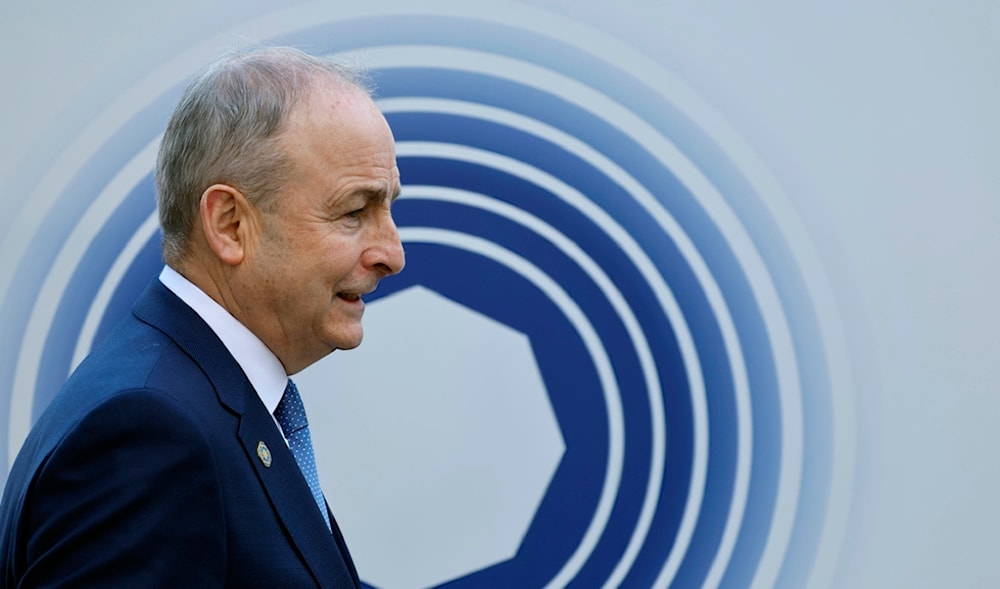Ireland not to join Ukraine 'deterrent force', considers peacekeeping
Following a meeting with Ukrainian President Volodymyr Zelensky in Ireland last Thursday, Irish Prime Minister Micheal Martin announced his proposal for Ireland to participate in a peacekeeping mission.
-

Ireland's Prime Minister Michael Martin arrives for an EU summit at the Egmont Palace in Brussels, Monday, Feb. 3, 2025. (AP)
Irish troops will not be deployed in Ukraine as part of a "deterrent force", Prime Minister Micheal Martin revealed on Wednesday, but said possibilities remained open for Ireland's involvement in a peacekeeping force.
Speaking to reporters after an Irish-British summit in Liverpool, Martin said, "If a ceasefire develops, or if there's a cessation of hostilities, Ireland has always been open to peacekeeping, but we wouldn’t be part of a deterrent force," stressing that both are "different and distinct issues."
Following a meeting with Ukrainian President Volodymyr Zelensky in Ireland last Thursday, Martin announced his proposal for Ireland to participate in a peacekeeping mission.
Although not a NATO member, Ireland’s 8,500-strong military has a history of joining international peacekeeping efforts under strict engagement rules, typically limited to self-defense.
Amid growing geopolitical tensions, the Irish government has signaled plans to abolish the "triple lock" mechanism, which currently requires United Nations approval for overseas troop deployments.
The move is politically contentious, as opposition parties view the triple lock as a key pillar of Ireland’s longstanding neutrality.
Macron claims 'Russia a threat to France, Europe'
Meanwhile, France and the United Kingdom revealed that their troops would be sent to Ukraine to ensure the ceasefire stands once potentially established, with US support. However, their roles have not been extensively disclosed.
EU leaders are expected to discuss nuclear deterrence, among other issues, as well as assistance for Ukraine and European defense, during their Thursday meeting in Brussels.
Macron, in a televised speech ahead of the meeting, labeled Russia as a "threat to France and Europe" and stated that he had chosen "to open the strategic debate on the protection of our allies on the European continent by our [nuclear] deterrent."
France must accept its "special status" as possessing the "most efficient, effective army in Europe" as well as nuclear weapons, according to Macron, who said he would encourage the French government to embark on a new investment that will allow it to raise private and public funds without raising taxes.
"Our nuclear deterrent helps us," Macron stated, adding that he would initiate discussions on extending the French nuclear umbrella to European partners.
Macron's move follows a recent demand from German election winner Friedrich Merz for a conversation on "nuclear sharing" with France.
Read more: Le Pen rejects European nuclear defense plan: Politico

 3 Min Read
3 Min Read









